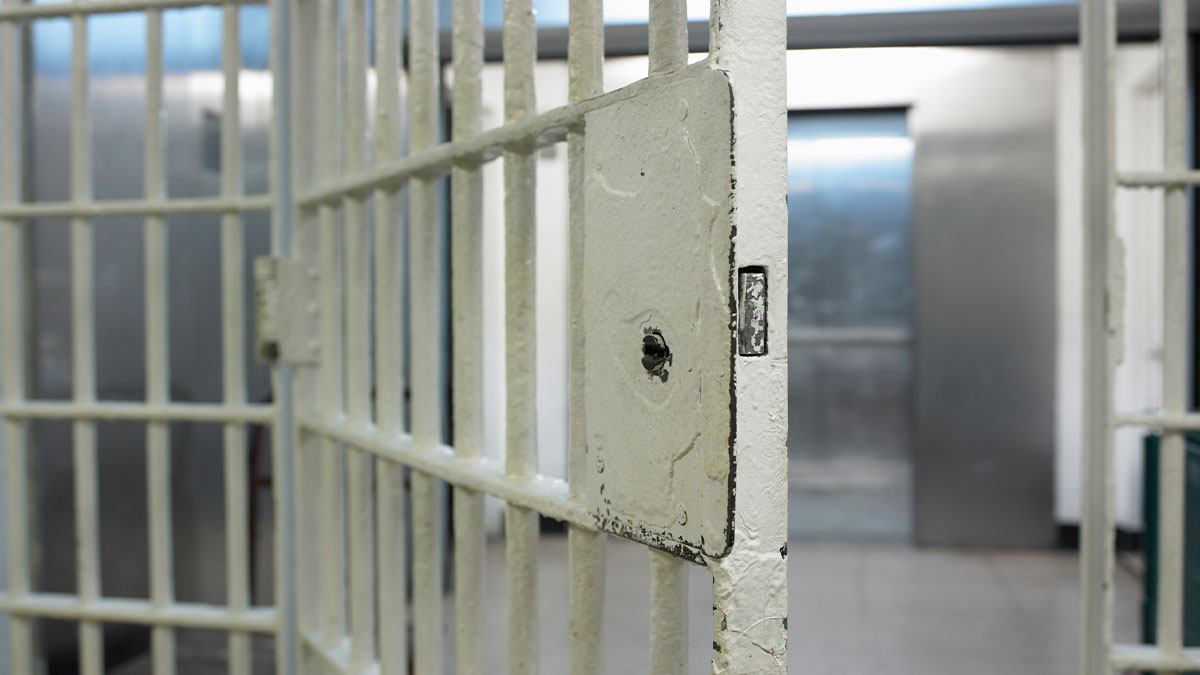After the Illinois Senate and House voted to approve of some major changes to Illinois' SAFE-T Act Thursday, sending the proposed amendment to the controversial bill to Gov. J.B. Pritzker, many are wondering what's next and what this means?
The measure required 71 votes to pass the House, and that's exactly how many votes it got as lawmakers, whose discussion became heated at times, approved the bill on a straight party-line vote.
Here's a look back at what exactly the SAFE-T Act is, which changes are expected and when it will all begin.
What is the SAFE-T Act?
Feeling out of the loop? We'll catch you up on the Chicago news you need to know. Sign up for the weekly Chicago Catch-Up newsletter here.
Emerging after the Minneapolis police beating death of George Floyd in May 2020, the SAFE-T Act sets rigorous new training standards for law enforcement, spells out rules for police use of force in immobilizing troublesome suspects, requires body cameras on all police by 2025 and more.
Authored by the Illinois Legislative Black Caucus, the act was approved by the Illinois General Assembly last year, bringing "significant changes" to things like police training policies, police accountability, transparency in law enforcement and the rights of detainees and prisoners, according to Sen. Elgie R. Sims, Jr., who sponsored the bill.
Among the changes it is set to bring are the elimination of monetary bail, a requirement that all police officers wear body cameras by 2025, a ban on all police chokeholds, new guidelines for "decertification" of police officers, and an end to suspended licenses for failure to pay, among several other things. It also bans police departments from purchasing military equipment like .50 caliber rifles and tanks, increases protection for whistleblowers, and adds to rights for detainees to make phone calls and access their personal contacts before police questioning.
Detainees, prisoners and all those who interact with police officers would have the expectation of prompt medical care while in custody, with special accommodations made for pregnant women. Charges of resisting arrest must cite a justification for the original arrest that was allegedly resisted against under the measure, as well.
For a complete list of what was included in the original SAFE-T Act click here.
How Would Bail Work Under the SAFE-T Act?
Under the original provisions of the bill, as passed by the General Assembly, the state would allow judges to determine whether individuals accused of a specific set of felonies and violent misdemeanors pose a risk to another individual, or to the community at large. Judges will also be asked to determine whether the defendant poses a flight risk if released.
If the judge makes any of those determinations, then the defendant may be held in jail prior to trial.
The list of so-called “forcible felonies” that could invite judicial discretion on pretrial detention includes first and second-degree murder, predatory criminal sexual assault, robbery, burglary, residential burglary, aggravated arson, arson, kidnapping, aggravated battery resulting in great bodily harm, or any other felony that involves the use or threat of physical force or violence against an individual. Several other crimes were added to this list under the recent amendment. (See below)
Detention hearings would not be not mandatory for crimes that include probation as a possible punishment, but judges can still make the determination to keep those defendants incarcerated pending trial if they determine they are a risk to the public.
Those charged with stalking, aggravated stalking, domestic battery and aggravated domestic battery would also potentially be subject to pretrial detention.
What Changes Were Proposed?
The amendment focuses largely on clarifying language on several fronts, including whether defendants detained prior to Jan. 1 will be released once the legislation goes into effect, and making clear which crimes would qualify for pretrial detention.
Crimes Added to Detention Net
The list of so-called “forcible felonies” that could invite judicial discretion on pretrial detention originally included first and second-degree murder, predatory criminal sexual assault, robbery, burglary, residential burglary, aggravated arson, arson, kidnapping, aggravated battery resulting in great bodily harm, or any other felony that involves the use or threat of physical force or violence against an individual.
But the latest proposal adds non-probationable felonies, forcible felonies, hate crimes, attempts of crimes that are otherwise detainable, and others to the so-called detention net — crimes that qualify a suspect for detention. Additions include offenses that require jail or prison time, and not probation; all forcible felonies; hate crimes, animal torture and DUI causing great bodily harm. Judges may also choose to release such suspects.
“We still have a detention net that is very clear, judges have discretion within that detention net,” Illinois State Sen. Robert Peters, who filed the amended bill, said. “But again, the intent and the core parts of this legislation remain intact.”
New Language Surrounding Hearings for Those Already Detained as of Jan. 1
According to a spokesperson for Illinois Senate President Don Harmon's office, the new language would clarify that "those currently detained can request to have the new system applied to their situation."
In order to make the process "manageable for courts," legislators proposed a tiered system for granting hearings on such requests. The hearings would then determine whether a current detainee should be released. The tiers would include:
- Lowest level offenses (example: petty shoplifting) hearings must be within 7 days of request.
- Those detained but considered flight risks would get hearings within 60 days.
- Those considered to be potential threats to safety get hearings within 90 days.
Trespassing Changes
Proponents of the bill say this was always allowed under the SAFE-T, but the amendment seeks to clarify some language.
For trespassing violations, officers would be required to issue a citation to a suspect first, unless the officer reasonably believes that the suspect poses a threat, or if they have an obvious mental or medical health issue. If an officer issues a citation and the trespassing continues, then an arrest can be made.
Under the latest proposal, an officer can arrest someone for trespassing if:
- The person poses a threat to the community or any person;
- Arrest is necessary because criminal activity persists after issuance of the citation; or
- The accused has an obvious medical or mental health issue that poses a risk to their safety.
If the above conditions are not present, a citation would be issued.
Definition of 'Dangerous' and Flight Concerns
The proposed changes also expand definitions for "willful flight," and expand judicial discretion in determining whether a defendant poses a danger to the public or a specific individual.
According to Harmon's office, the amendment "makes consistent throughout the entire act what a prosecutor must show to detain an individual on grounds the individual is a threat."
The so-called “dangerousness standard” would be met if "the person poses a real and present threat to any person or persons or the community, based on the specific, explainable facts of the case."
What Happens if Someone Misses a Court Date
Also included in the new proposal is a provision that allows judges to issue arrest warrants or summons when someone misses a court date.
A summons is an official notice to appear in court, while an arrest warrant tells police to arrest and detain, officials stated.
The amendment also clarifies what is considered “willful flight” under the bill, adding that "intent is to detain those who are actively evading prosecution, not someone who failed to appear in court because, for example, they missed their bus," Harmon's office said.
Here is the full text of the bill:
What Happens Next?
The amended bill is expected to be signed by Pritzker. It would then take effect on Jan. 1, 2023.
What Do Supporters Say?
The goal of the proposal is to detain dangerous people while they await trial while not locking up those who pose no threat but sit in jail simply because they can't afford bail, according to proponents.
Proponents of the bill argue that the cash bail system disproportionately impacts minority communities, and that eliminating the practice will help to ensure more equitable outcomes.
Illinois' Senate Democratic Caucus said clarifications to the bill were made in "collaboration with law enforcement, states attorneys and other stakeholders."
“The SAFE-T Act was the result of hours of testimony and negotiations with domestic violence advocates, proponents of reform, law enforcement and states attorneys at the table working to create a pathway to a better and more equitable criminal legal system,” State Sen. Elgie R. Sims, Jr. said in a statement. "However, due to the misinformation campaign led by opponents of the measure, we spent countless hours dispelling falsehoods and working to ensure that the law was not taken out of context. The trailer we passed allows us to clarify the language of this transformational law while preserving the protections for crime survivors and ensures we stop criminalizing poverty in this state.”
What Do Critics Say?
While Republicans agreed that adding crimes to what the law calls the “detention net” greatly improved matters, they remain worried about the risks of potentially releasing dangerous criminals. They also expressed concern about the short timeline for judges and prosecutors to prepare for the changes, and what they see as as the flight into retirement of law enforcement officers over objectionable parts of the act.
Critics say there are lingering questions over why some conditions of pretrial release will not be made public and why nonviolent burglary was not listed on the list of detainable offenses.
Like much of the debate since the SAFE-T Act was approved in the wee hours' finish of a lame-duck session in January 2021, critics and supporters continued to debate largely over semantics — for instance, burglary.
Republicans said burglary should be included in the detention net, Democrats claimed it already is. During floor debate, Peters pointed out the page and line number, which includes “burglary where there is use of force against another person," a redefinition of burglary, noted McClure.
“That’s robbery,” McClure replied. “If you go into somebody’s unattached garage, or a business or into somebody’s car, those are all regular burglaries where you’re not threatening the use of force on somebody else.”
Those suspected of such burglaries, when set free, have little reason not to commit another such offense, he said.
Republicans pounced on the repeated changes to the law despite Democrats' claims that it was solid.
Republicans also criticized the process in which the measure was passed.
"Republicans have been frozen out of the process," said State Sen. John Curran. "We represent 35% approximately of the state and never once in two years have we been allowed an opportunity to participate."



